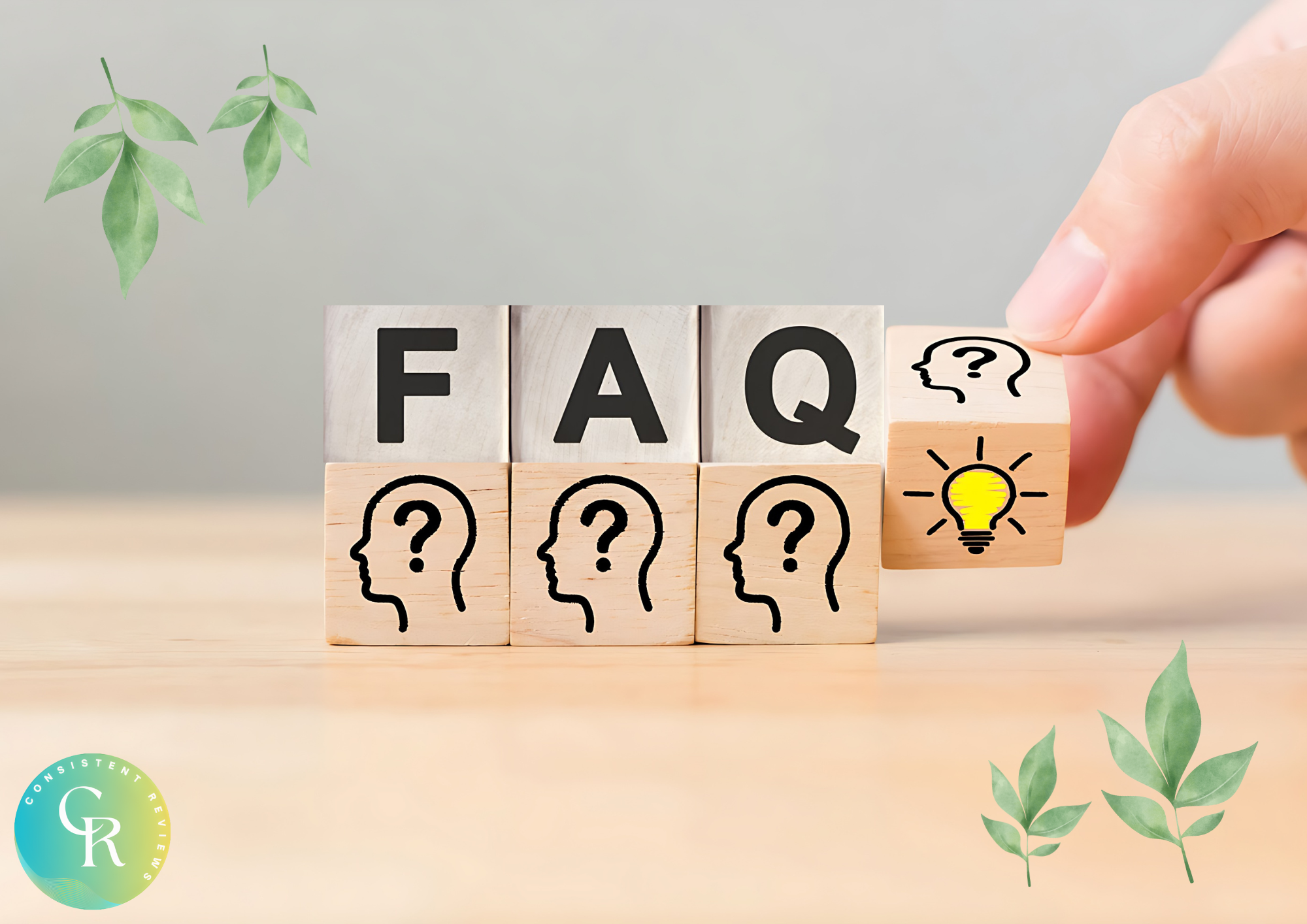Apple cider vinegar (ACV) has been hailed for its numerous health benefits, from aiding weight loss to improving digestion. However, with the rise of apple cider vinegar gummies, many are turning to this convenient form of ACV without fully understanding the potential side effects. This article aims to shed light on the less-discussed aspects of consuming apple cider vinegar in gummy form.
Key Takeaways:
- Apple cider vinegar gummies can have side effects similar to liquid ACV, including tooth enamel erosion and digestive issues.
- Consuming these gummies in excess may lead to lower potassium levels and interact with certain medications.
- It's important to understand the potential risks and consult with a healthcare provider before incorporating ACV gummies into your diet.
The Allure of Apple Cider Vinegar Gummies
The apple cider vinegar diet has become a popular trend for those looking to lose weight and improve their health. As a result, apple cider vinegar gummies have emerged as a tasty alternative to the sour taste of liquid vinegar. These gummies are often marketed as a convenient way to enjoy the supposed health benefits of ACV without the unpleasant taste.
Potential Risks of ACV Gummies
Despite their popularity, apple cider vinegar gummies side effects are not to be overlooked. The gummies contain acetic acid, the active component in liquid ACV, which can cause tooth enamel erosion and digestive issues if consumed in excess. It's crucial to be aware of these risks and consume vinegar products responsibly.
Tooth Enamel Erosion: A Sour Reality
One of the most significant concerns with taking apple cider vinegar, whether in liquid or gummy form, is the risk of tooth enamel erosion. The acetic acid in ACV is highly acidic and can weaken and erode tooth enamel over time, leading to increased sensitivity and tooth decay.
Protecting Your Smile

To minimize the risk of dental erosion, it's advisable to avoid consuming undiluted apple cider vinegar and to limit the intake of ACV gummies. Additionally, drinking water after consuming vinegar products can help wash away the acid and protect your teeth.
Digestive Discomfort: Not So Gummy
Consuming apple cider vinegar gummies can lead to digestive issues for some individuals. The acetic acid can cause delayed stomach emptying, which might worsen symptoms for those with acid reflux or other lower digestive tract conditions.
Balancing Gut Health
While some believe that ACV can improve gut health, it's essential to listen to your body and recognize any signs of digestive discomfort. If you experience adverse effects, it may be best to decrease your vinegar intake or seek alternative dietary supplements.
Impact on Blood Sugar and Diabetes Control
Apple cider vinegar gummies are often touted for their ability to lower blood sugar levels and improve insulin sensitivity. However, for those on diabetes medications, consuming vinegar can lead to unpredictable fluctuations in blood glucose levels.
A Delicate Balance
If you're managing diabetes, it's crucial to consult with your healthcare provider before incorporating ACV gummies into your diet. They can advise on how to safely include them without disrupting your diabetes control regimen.
Potassium Levels and Bone Health
A high intake of apple cider vinegar gummies can decrease potassium levels in the body, which is vital for maintaining bone health. Low potassium levels can lead to weakness, fatigue, and in severe cases, bone density loss.
The Home Remedy Hype: Apple Cider Vinegar for Skin and Cholesterol

Have you heard about applying apple cider vinegar to treat moles or using it as a home remedy to lower cholesterol? It's fascinating how a kitchen staple has gained such a reputation. When it comes to skincare, some swear by apple vinegar's ability to treat moles and provide a clearer complexion. However, caution is advised as the high acidity can lead to chemical burns if not diluted properly. Always do a patch test before going full swing with any topical application.
As for cholesterol, internet-based protocols suggest that drinking apple cider vinegar could contribute to lower cholesterol levels. While there's little research to back up these claims, some studies have indicated that apple cider vinegar might help in reducing serum triglyceride levels. It's the presence of short-chain fatty acids in apple cider vinegar that's thought to have these beneficial effects. Still, it's essential to approach these home remedy claims with a healthy dose of skepticism and consult with a healthcare provider.
The Hidden Dangers of Acidic Foods and ACV Products
When it comes to acidic foods, apple cider vinegar (ACV) products, including gummies, tablets, and pills, are often at the forefront of the conversation. Consuming these products in excess can lead to a condition known as a chemical burn in the esophagus or stomach lining. This is because the high acidity of vinegar can be corrosive when it comes into direct contact with sensitive tissues. While the gummies may have a coating to mitigate this risk, apple cider vinegar tablets may pose a higher threat due to their concentrated form.
Moreover, the acidity of these products can exacerbate conditions like acid reflux, where stomach acid irritates the esophagus. For individuals with a predisposition to such conditions, it's crucial to consider the potential aggravation that ACV products could cause. It's not just about the form—gummy, tablet, or pill—but also about the frequency and quantity of consumption. Moderation is key, and understanding how your body reacts to acidic foods is essential for maintaining gastrointestinal health.
The Role of ACV in Appetite Control and Weight Management
Apple cider vinegar has been touted for its potential role in appetite control, which could indirectly influence body weight management. The theory is that ACV might help stabilize blood sugar levels, leading to a reduction in food cravings and a lower likelihood of overeating. This could be particularly beneficial for those following an internet-based protocol for weight loss, where self-regulation of food intake is crucial. Apple cider vinegar tablets and pills are often marketed with this benefit in mind, promising a convenient way to incorporate ACV into one's diet without the strong taste.
However, it's important to approach these claims with a healthy dose of skepticism. While some small studies have suggested a link between ACV consumption and appetite control, the evidence is not conclusive. Moreover, relying solely on apple cider vinegar products for weight management overlooks the importance of a balanced diet and regular exercise. It's essential to consider the role of ACV as just one component of a holistic approach to health, rather than a magic bullet for body weight reduction.
ACV Tablets and Pills: A Convenient Alternative?

When it comes to convenience, apple cider vinegar tablets and pills are gaining traction among those who avoid apple cider vinegar in its liquid form. The idea of taking a pill instead of drinking ACV appeals to many, especially those who can't stomach the strong taste or acidity. These products promise the same benefits without the hassle, but it's important to understand that the efficacy and safety of these supplements can vary widely.
On the flip side, there's a concern that these concentrated forms could exacerbate the risk of low potassium levels and interact with certain medications. Before you decide to switch from drinking ACV to popping a pill, consider the potential risks. If your potassium levels drop, you could be facing more serious health issues. Always read the label carefully and, if in doubt, reach out to a healthcare professional to ensure that any form of apple cider vinegar supplementation is appropriate for your health needs.
Maintaining Mineral Balance
To support bone health and avoid a drop in potassium levels, it's important to maintain a balanced diet rich in potassium from sources like fruit juices, citrus fruits, and fermented apples. Be cautious with the amount of ACV gummies you consume, especially if you're also taking diuretic drugs.
Interactions with Medications
Apple cider vinegar gummies can interact with certain medications, including diuretics, insulin, and other diabetes drugs. These interactions can lead to adverse effects, such as lower blood pressure or altered medication efficacy.
Safe Supplementation
Before taking apple cider vinegar gummies, especially if you're on medication, consult with a medical professional. They can guide you on safe supplementation practices and help you avoid any potential drug interactions.
Weight Management: A Double-Edged Sword
While some obese Japanese subjects in studies have shown a reduction in body fat mass when consuming vinegar, relying solely on ACV gummies for weight management can lead to unhealthy weight loss practices. It's essential to approach weight loss as part of a healthy lifestyle, not just through dietary supplements.
Sustainable Weight Loss Strategies
For effective and sustainable weight loss, focus on a balanced diet, regular exercise, and healthy food intake. Apple cider vinegar gummies should not replace these fundamental elements of a healthy diet.
The Fermentation Process: What's Inside Your Gummy?
Apple cider vinegar is crafted through a fermentation process that transforms sugars from apples into acetic acid. When selecting ACV gummies, it's crucial to grasp their production method and the potential presence of additional ingredients.
Reading the Label
Look for gummies that contain the beneficial short-chain fatty acids found in liquid ACV and avoid those with excessive added sugars or artificial ingredients. This ensures you're getting closer to the supposed health benefits of traditional apple cider vinegar.
The Verdict on Apple Cider Vinegar Gummies
While apple cider vinegar gummies offer a convenient and palatable way to consume vinegar, they come with potential side effects that mirror those of liquid ACV. It's important to be mindful of these risks and to incorporate ACV gummies into your diet in moderation.
Consulting Healthcare Providers
Before commencing any new supplement, such as apple cider vinegar gummies, it is prudent to seek guidance from a healthcare professional. They can offer tailored recommendations considering your health status and medical background.


Can apple cider vinegar gummies help me lose weight?
While some studies suggest that apple cider vinegar can aid in weight management, it should not be relied upon as a sole method for losing weight. Achieving lasting weight loss requires a blend of nutritious eating, consistent physical activity, and mindful consumption of food.
Are apple cider vinegar gummies safe for everyone to consume?
Not necessarily. People with certain health conditions, those taking medications, or individuals with a history of digestive issues should consult with a healthcare provider before consuming ACV gummies.
How many apple cider vinegar gummies should I take per day?
The recommended dosage can vary depending on the brand and concentration of ACV in the gummies. It's best to follow the manufacturer's instructions and consult with a healthcare provider to determine the appropriate amount for your individual needs.

Apple cider vinegar gummies have become a popular health trend, but they are not without their side effects. Tooth enamel erosion, digestive issues, and interactions with medications are just a few of the potential risks associated with these gummies. It's crucial to consume them in moderation, understand their ingredients, and consult with a healthcare provider before adding them to your diet. Remember, a healthy lifestyle involves more than just supplements; it requires a balanced diet, regular exercise, and mindful food intake.










